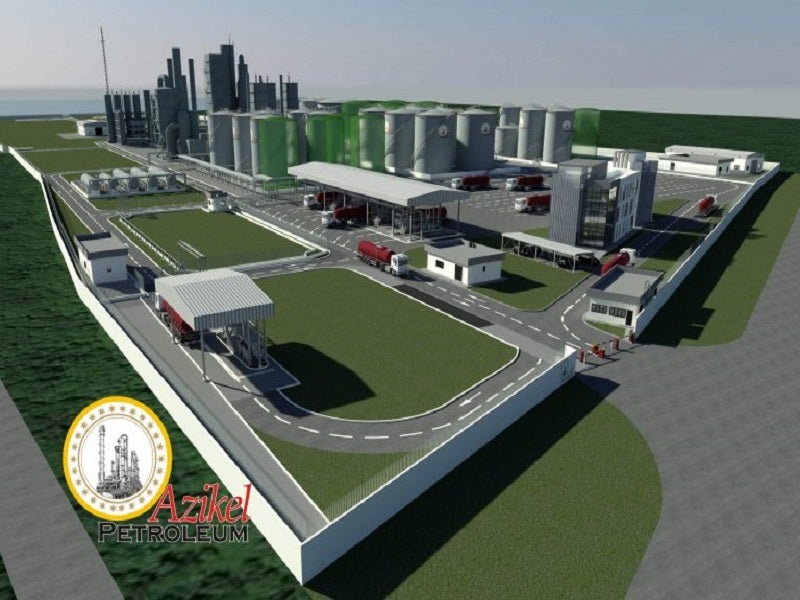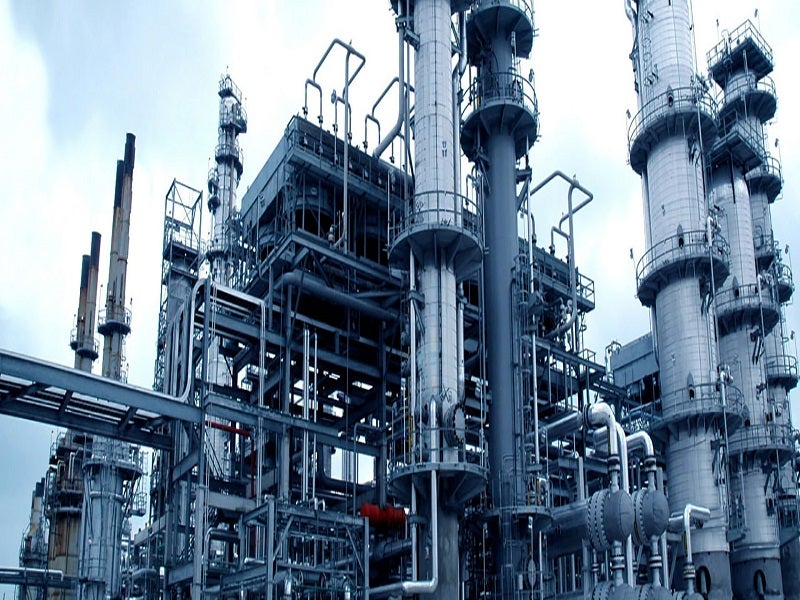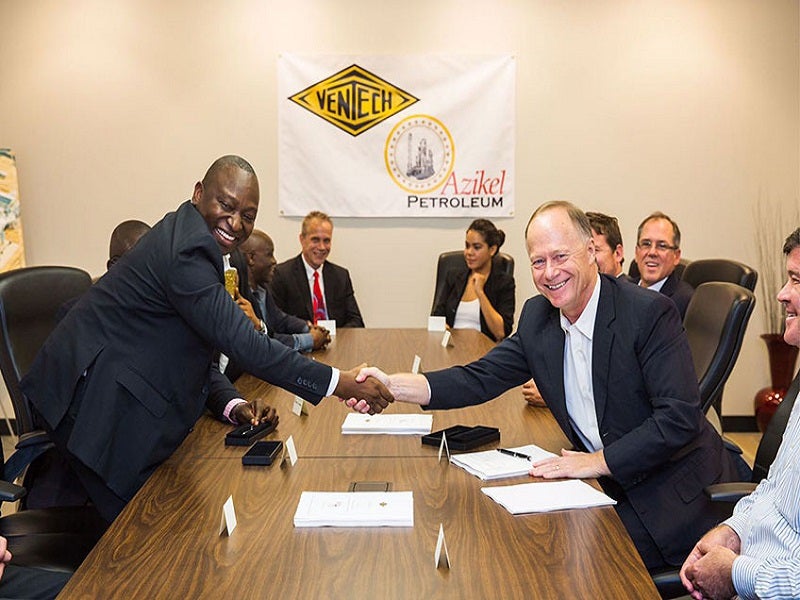The Azikel refinery is a modular hydro-skimming petroleum refinery being developed in Yenagoa in Bayelsa state of Nigeria. It is the first private hydro-skimming refinery being developed in the country.
The refinery is being developed by Azikel Petroleum, a subsidiary of Azikel Group, which operates various businesses in Nigeria including dredging, air transportation, power, and petroleum.
The new refinery will have a total production capacity of 12,000barrels per day (bpd). It will process Bonny Sweet light crude and Gbarain condensate to produce high quality petroleum products including a few secondary products.
Azikel refinery location and site details
The refinery is located in the Obunagha complex of the Gbarain region, near the city of Yenagoa in Bayelsa State. It is in close proximity to the shores of the Nun River towards the south, the Gbarain-Ubie Shell gas gathering facility on the east, and the proposed Azikel power plant on the west.
The refinery site covers an area of 19.9ha and is well-connected to road transport infrastructure by the East-West Road and the Issac Adako Boro Expressway that connects to Yenagoa and Port Harcourt.
Azikel refinery design details
The Azikel refinery development is divided into two segments – Outside Battery Limits (OSBL) and Inside Battery Limit (ISBL).
The ISBL segment will include process units of different sizes, which are designed to produce mixed liquefied petroleum gas (LPG), gasoline, kerosene/Jet A1, diesel and heavy fuel oil products. It will comprise of a crude distillation unit with debutaniser, naphtha hydrotreater, naphtha splitter, catalytic reformer, diesel treater, isomerisation units, steam boilers and gasoline stabiliser.
The OSBL segment includes an internal road network of 3.1km and total storage capacity of 665,700 barrels or 70,930m3 for crude and refined products with 32 units of different tank sizes.
The area will also house a security building, maintenance building, administrative building, terminal operator building, vapour collection centre, fire-fighting station, loading gantry, water treatment and utilities.
The refinery will receive feedstock from the nearby Gbarain-Ubie Shell facility through a pipeline to the storage tanks. The raw water consumption of the refinery will be 140 gallons per minute (gpm) and cooling water circulation will be 1,200gpm.
Azikel refinery development and construction details
The major engineering designs for the Azikel refinery were implemented in 2015 and the soft development of the project began during the same year. Infrastructural development works began in 2016 after receiving environmental and social impact assessment certificate followed by land acquisition and land preparation.
The refinery site comprises of naturally thick virgin swamp forest, which required massive sand filling to enable construction. The land reclamation and sand filling works for the site required the use of 2.7 million cubic meters of sand over a period of nine months.
The detailed engineering works commenced in 2017 followed by the civil and mechanical works. Concrete perimeter fencing and construction of the internal road network commenced during the same year.
Major works undertaken in 2018 included the construction of the storage tanks, administrative building, terminal operating building, and helipad apart from installation works for the main refinery.
Procurement and fabrication of the main modules including the crude distillation units, isomerisation units, and naphtha hydrotreater is currently ongoing.
Azikel refinery products
The primary products of the refinery will include premium motor spirit, diesel, kerosene, LPG and aviation fuel.
The secondary products from the refinery will comprise of heavy fuel oil, naphtha, and gas oil.
Contractors involved
McDermott, an engineering and construction company, was awarded the engineering, procurement, and construction (EPC) contract for the ISBL segment of the refinery in July 2020. McDermott also worked on an extended front-end engineering and design (FEED) contract since 2018.
UAE’s MUC Oil and Gas undertook the project management consulting and FEED contract for the project.
Other companies associated with the project include Honeywell UOP, Oil Project USA, JLS Capital Strategies, Shell, MRS, Norton Rose Fulbright, Atlantic Gulf and Pacific Company, and Chemie-Tech.





